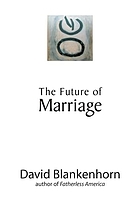But all joking aside, there is another aspect to this landmark decision, apart from the opportunities for comedy and even just the straightforward legal-political victory which is the end of DOMA and the practical inequalities it enacted. And that is the fact that, as a bisexual woman married to my wife in the state of Massachusetts, there is something incredibly personal and incredibly powerful about reading a majority opinion written by the Supreme Court of the United States not only affirming my equal rights as a married citizen, but affirming our rights as sexual citizens not to be devalued because of our same-sex relationships.
It's not like my marriage was somehow lesser, or invalid, while DOMA was still the law of the land. I don't need the government to approve of my behaviors or relationship choices in order for me to feel like they were (are) the right ones for me.
But sociopolitical marginalization, cultural erasure, and silencing happen when our voices are not heard, or listened to, in the halls of power. The majority opinion in Windsor is one small instance of feeling myself fairly and fully represented -- honored, even -- in a document issued by the highest court in the land. So often, national debate on issues that have direct bearing in my lived experience -- women's health, sexism, student loans, labor rights, environmental sustainability -- feel like they are discussed in some bizarre vacuum by people whose lives are vastly different from my own, and who have made no honest effort to understand (much less honor) what my life is like and what would make it better.
Then, every once in a while, someone (in this case a group of someones) with a great deal of power and authority hauls it up from their toes and produces something like this:
DOMA’s principal effect is to identify a subset of state-sanctioned marriages and make them unequal. The principal purpose is to impose inequality, not for other reasons like governmental efficiency. Responsibilities, as well as rights, enhance the dignity and integrity of the person. And DOMA contrives to deprive some couples married under the laws of their State, but not other couples, of both rights and responsibilities. By creating two contradictory marriage regimes within the same State, DOMA forces same-sex couples to live as married for the purpose of state law but unmarried for the purpose of federal law, thus diminishing the stability and predictability of basic personal relations the State has found it proper to acknowledge and protect. By this dynamic DOMA undermines both the public and private significance of state-sanctioned same-sex marriages; for it tells those couples, and all the world, that their otherwise valid marriages are unworthy of federal recognition. This places same-sex couples in an unstable position of being in a second-tier marriage. The differentiation demeans the couple, whose moral and sexual choices the Constitution protects, see Lawrence, 539 U. S. 558, and whose relationship the State has sought to dignify. And it humiliates tens of thousands of children now being raised by same-sex couples. The law in question makes it even more difficult for the children to understand the integrity and closeness of their own family and its concord with other families in their community and in their daily lives. (Windsor, 22-23; emphasis mine).
For a reminder of just how awesome -- in the classical sense of the world -- the use of such language is in relation to our rights as non-straight sexual citizens, go and read E.J. Graff's personal-historical look back over the last half-century of political movement on other-than-heterosexual rights.
The court is far from perfect -- as evidenced by its Voting Rights ruling on Tuesday -- and the affirmation of queer folk as fully part of the national community is far from complete. But I am all for recognizing the gains as well as the losses, and this is -- for all that we've become nearly blase about same-sex marriage these past months, cock-sure that DOMA was going to fall -- this still is a pretty amazing, even breath-taking gain on the side of humanity.














